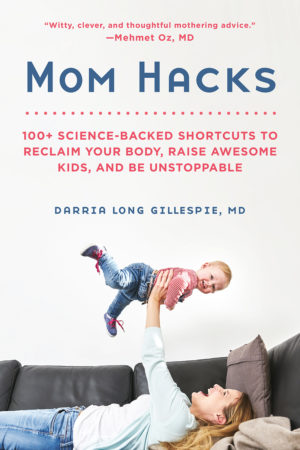When I became a mother in 2003, I had the same concerns as any other new mom: Is my baby healthy? Is he eating enough? Shouldn’t he be sitting up by now? How do I get him to sleep through the night? Why is he crying AGAIN?
By the end of my first year of motherhood, I was heavier than I’d been in years and the euphoria of becoming a mother had morphed into feelings of isolation and perpetual fatigue. I didn’t recognize myself in the mirror, and it would be another two years before I snapped out of it and started taking care of myself physically. I started running and changed my diet. Things started to shift, and on the outside, I looked fine. Emotionally and mentally, however, I was drained. It would be upwards of ten more years before I truly understood that self-care, from the inside out, is a real and necessary thing.
Fortunately, the good outweighs the exhaustion, which means it’s been a fun ride so far. Still, as my boys approach 13 and 16 years of age this year, it remains a daily goal to take care of myself mentally and physically. Every day requires intention and focus so I don’t get lost in the fray. Last year I wrote a blog series about the importance of self-care, and I still mean every word.
It was also last year when a high school classmate approached me to help edit a book she was writing. Dr. Darria Long Gillespie, an accomplished emergency physician, TV spokesperson, and mom of two, knew that settling for constant exhaustion was not only bad for her health, but also a lie. “Sick and tired” didn’t have to be the status quo. As I read and edited the material, I knew her advice would’ve helped me from day one. In fact, there were a number of things I learned and implemented immediately to help reduce daily stress and better manage my time.
For all the moms currently in the thick of parenting, particularly in those exhausting, fast-paced early years, I’ve got a book to recommend: Mom Hacks: 100+ Science-Backed Shortcuts to Reclaim Your Body, Raise Awesome Kids, and Be Unstoppable.
Q&A with Dr. Darria
What made you want to write a book, and why now?
I wanted to write this book because I realized that when I’m in the ER, that no matter what comes through the double doors, that ‘I’ve got this.’ No matter what, I can handle it. When I became a parent myself, and I saw moms and friends who didn’t have that feeling, I wanted to transfer that mindset to them. I wrote the book when I needed it. I didn’t write it because I’ve figured out parenting down pat. I’d just had my second child and I needed solutions. There’s a lot of contradictory and bad information out there, and I had access to great experts. I wanted knowledge from them.
 Explain how the book is broken down — what will readers find inside?
Explain how the book is broken down — what will readers find inside?
It’s broken down into four sections: nutrition, exercise, sleep, and resilience/stress management. They are the main drivers of our health, and they’re intertwined. You can start from page one and read all the way through, but you can also turn to the table of contents and choose a hack that means something to you. Some are concrete and tactile, such as how to rearrange your pantry so you eat less, and some are more conceptual, like how to rewire your brain to seek out the positive and be more of an optimist in about 30 minutes a day.
As a working mother with many demands on your time and energy, how did you swing it? Was there a hack you used to accomplish it?
I use every single hack. People say, “How do you write a book and be a mom and work in the ER and run?” But that’s missing the point. I can write a book and work in the ER because I run. Exercise is a huge happy pill for me, and it makes a huge difference if I do it before the kids get up. I also leverage light. Light dictates our circadian rhythm, so I get bright light as soon as I wake up. It shuts down melatonin levels, like a reset. It gets rid of that zombie interval. Get bright light the minute you wake up. It takes no work and hurts only for a minute.
Not every mom struggles with the same thing. We all have our areas. What’s a hack every mom needs to know?
The inner critic. We all have her. She’s the mean girl. It’s profane the things we say to ourselves. You’re doing a great job. Know that. Cut yourself some slack. Shut her up. Challenge her when you start down that catastrophizing road. We all have that at times. Also, there’s a lot about sleep. There are a bunch of statistics on why mothers sleep poorly. I remember being in residency and I’d just finished a 36-hour shift. I spilled my coffee or something and started bawling. When I became a crazy person it wasn’t because I was crazy. It was because I needed sleep.




















